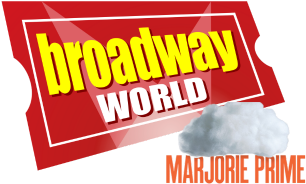BWW Reviews: Love! Sex! Torture! The Met's TOSCA Has Everything (Great Music, Too)
Maybe next time around, the Metropolitan Opera's General Manager Peter Gelb will hire film director Quentin Tarantino to do a production of Puccini's TOSCA. With its sordid story, self-involved diva and torture-happy, sex-crazed police chief--based on a Sarah Bernhardt vehicle by Victorien Sardou--this is a story that the director of "Pulp Fiction" and "Kill Bill" could sink his teeth into.
If the opera wasn't so filled with wonderful, inventive music--or if the music publisher Ricordi hadn't tricked a lesser composer away from taking on the subject by saying it was "not suitable for operatic treatment"--it might have had a lesser fate. As it is, TOSCA is approaching its 1000th performance at the Met, with no end in sight. On Saturday November 9, it will be featured on the Met's "Live in HD" broadcast.
On its own terms
This Luc Bondy production came in for much criticism when it first opened in 2009, replacing the Franco Zeffirelli designs that were either "classic" or "overdone," depending on who was doing the talking. The sniping still goes on. While the concept has its ups and downs, it mostly works on its own terms, particularly for those unfamiliar with other productions. And no one could ever accuse these designs from Richard Peduzzi, with lighting designer Max Keller and costumes by Milena Canonero, of distracting attention away from the music.
Even though Puccini is specific in the sites for the opera's three acts, by this time we're used to designers having their own way with the classics. In this case, the opening scene in the church of Sant'Andrea della Valle is a plain-Jane brick building rather than the usual baroque gem, but it's a reasonable solution, except for the silly bare-breasted Madonna. The last act takes place on Castel Sant'Angelo, showing less of the fortress than usual, but certainly within reason. The glitch, however, is Act Two, which supposedly takes place in the opulent Farnese Palace but looks more like the office of a Communist era bureaucrat in Budapest of the '60s. It's just plain ugly. The addition of prostitutes, on the other hand, fits the director's vision of the piece.
A vivid performance
In any case, this was certainly among the most vivid performances of TOSCA I can recall, particularly with a cast of polished singers, as was the case at the November 2 performance I attended. Top marks go to George Gagnidze, who was almost unbearably sleazy as Scarpia, the police chief. Even if he doesn't have the most opulent sound around, he knows how the put the role across and made a strong impression, nailing its pettiness, cynicism and sarcasm, as when he daintily applauds Tosca's big aria, "Vissi d'arte." Frankly, he made my skin crawl.
Tenor Roberto Alagna, as the activist artist Mario Cavaradossi, did some awfully loud singing in the first act, with "Recondita armonia" coming in for some major whiplash and shortage of nuance. This all changed in Act 2 and he did some lovely singing through the rest of the opera, including the big aria "E lucevan le stelle" just before his execution. He made a fine pair with soprano Patricia Racette's self-centered diva, Floria Tosca, who seemed hyper-narcissistic in this production [even more than usual]. The emphasis is always on how the action is affecting her: She doesn't know if she can take Cavaradossi's continued torture, why is God punishing her, etc. Racette is a game performer and goes wherever Bondy's Tosca takes her; she did some fine singing while having to put up with more than the usual touchy-feely antics of the male characters.
Playing the score blindfolded
At this point, the Metropolitan Opera's orchestra could probably play the score of Puccini's TOSCA blindfolded--which was pretty much what it was called upon to do at Saturday evening's performance. Conductor Riccardo Frizza seemed to be leading a performance of some other opera on some other planet--particularly in the third act--but thankfully, the well-rehearsed musicians went about their business with considerable aplomb.
Back when this production was new and maligned, there was talk that the Met was going to alternate it with the Zeffirelli version, known for its realistic settings and cast of thousands. They seem to have abandoned that idea and it's probably just as well. The show must go on--and with TOSCA, the show's all in the music.
Reader Reviews
Videos
